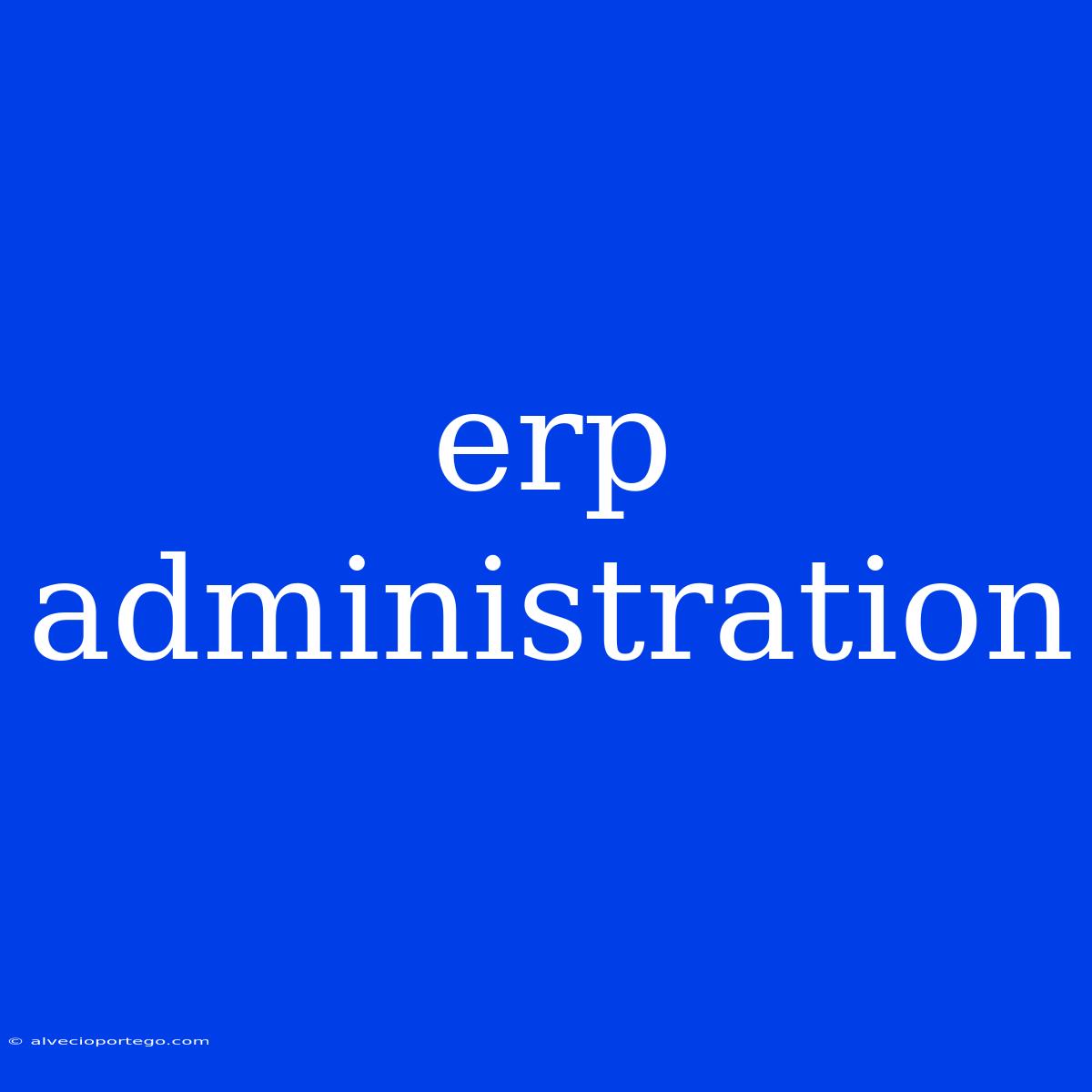ERP Administration: The Backbone of Your Business Operations
Enterprise Resource Planning (ERP) systems are the lifeblood of many modern businesses, encompassing a wide range of crucial functions from finance and accounting to inventory management and supply chain logistics. To ensure seamless and efficient operations, ERP administration plays a vital role in maintaining, configuring, and optimizing these systems.
What is ERP Administration?
ERP administration involves the technical and managerial tasks required to keep your ERP system running smoothly. This includes:
- System Configuration: Setting up and customizing the system to meet specific business needs. This involves defining user roles, permissions, data structures, and workflows.
- Data Management: Ensuring data accuracy, integrity, and security. This involves managing backups, implementing data cleansing procedures, and monitoring system performance.
- User Management: Creating and managing user accounts, assigning roles and permissions, and providing training and support.
- System Monitoring and Maintenance: Proactively identifying and resolving issues, including performance optimization, troubleshooting errors, and implementing security patches.
- Reporting and Analytics: Generating reports and analyzing data to identify trends, areas for improvement, and optimize business processes.
- Integration with Other Systems: Connecting your ERP system with other applications like CRM, e-commerce platforms, and accounting software.
- Project Management: Managing ERP implementation and upgrade projects, ensuring they are completed on time and within budget.
Why is ERP Administration Important?
Effective ERP administration is crucial for several reasons:
- Optimizing Business Processes: A well-configured and maintained ERP system can streamline operations, reduce errors, and improve efficiency.
- Data Integrity and Security: Proper administration ensures the accuracy, integrity, and security of your business data, mitigating risks of data loss and breaches.
- Improved Decision-Making: Access to accurate and timely data through reports and analytics allows for data-driven decision-making.
- Enhanced User Experience: Proper user management and support provide a positive user experience, leading to greater productivity.
- Business Continuity: Regular maintenance and backups minimize downtime, ensuring business continuity and minimal disruptions.
The ERP Administrator's Responsibilities
An ERP administrator is responsible for various tasks, including:
- Technical Expertise: Possessing a strong understanding of the ERP system's architecture, functionality, and configuration.
- Problem-Solving: Identifying and resolving technical issues efficiently and effectively.
- Communication Skills: Communicating effectively with users, management, and IT staff.
- Documentation: Maintaining accurate and detailed documentation of system configurations and processes.
- Continuous Learning: Staying up-to-date with the latest ERP technologies, features, and security updates.
The Benefits of Effective ERP Administration
Effective ERP administration offers numerous benefits:
- Increased Productivity and Efficiency: Streamlined workflows and automated tasks lead to higher productivity and reduced operational costs.
- Enhanced Accuracy and Data Integrity: Minimized errors and data inconsistencies improve the accuracy of financial reporting and business decisions.
- Improved Customer Satisfaction: Efficient processes and accurate data contribute to better customer service and increased satisfaction.
- Better Compliance: ERP systems help businesses meet regulatory requirements and maintain compliance with industry standards.
- Strategic Advantage: An optimized and integrated ERP system provides a competitive advantage by enabling businesses to respond faster to market changes and adapt to new opportunities.
Conclusion
ERP administration is essential for successful ERP implementation and ongoing operations. By investing in skilled administrators and prioritizing effective system management, businesses can unlock the full potential of their ERP systems, drive efficiency, and gain a competitive edge.

